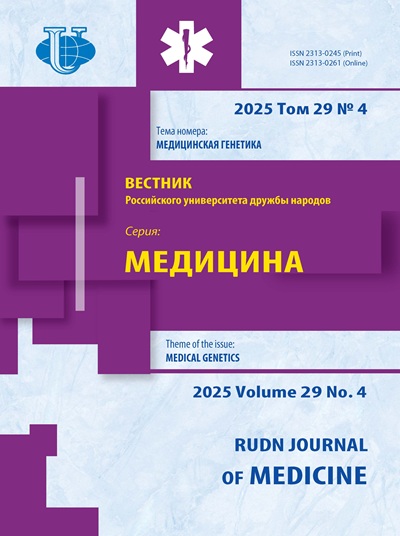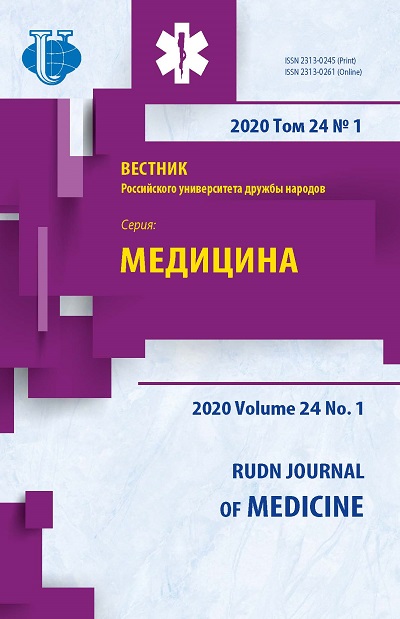Microbial flora of dentin of remote wisdom teeth
- Authors: Sidorenko V.O.1, Panin A.M.1, Tsitsiashvili A.M.1, Podporin M.S.1
-
Affiliations:
- Yevdokimov Moscow State University of Medicine and Dentistry
- Issue: Vol 24, No 1 (2020)
- Pages: 52-60
- Section: Stomatology
- URL: https://journals.rudn.ru/medicine/article/view/23394
- DOI: https://doi.org/10.22363/2313-0245-2020-24-1-52-60
- ID: 23394
Cite item
Full Text
Abstract
The aim of our study was to study the microbial flora of autodentin of removed wisdom teeth and compare it with the microbial flora of the oral cavity in order to determineits safe use as graft for thereplacement of defects of the alveolar bone. Relevance. The dental dentin is close in organic and mineral composition to human bone tissue. A bone autograft is considered the “gold standard” for ridge augmentation. However, a bone autograft graft increases the morbidity of reconstructive operations, requiring the formation of a donor zone, which increases the feeling of discomfort and the patient’s rehabilitation time. Increases the risk of intra- and postoperative complications. Materials and methods. A group of patients with wisdom teeth to be removed had smears taken from the mucous membrane in the area of the extracted teeth. After that, the teeth were removed, crushed using a bone mill manually, or reduced to thin plates, placed in nutrient media and sent for microbiological examination. Conclusions. According to the microbiological study, the microflora of the oral cavity and the microbial flora of the extracted teeth were identical, only quantitative indicators differed.
Keywords
About the authors
V. O. Sidorenko
Yevdokimov Moscow State University of Medicine and Dentistry
Author for correspondence.
Email: nika_sidorenko@mail.ru
Moscow, Russian Federation
A. M. Panin
Yevdokimov Moscow State University of Medicine and Dentistry
Email: nika_sidorenko@mail.ru
Moscow, Russian Federation
A. M. Tsitsiashvili
Yevdokimov Moscow State University of Medicine and Dentistry
Email: nika_sidorenko@mail.ru
Moscow, Russian Federation
M. S. Podporin
Yevdokimov Moscow State University of Medicine and Dentistry
Email: nika_sidorenko@mail.ru
Moscow, Russian Federation
References
- Tsymbalov O.V. Dental implantation in periodontal diseases. Krasnodar: Edvey, 2014. 192 p. (In Russ.)
- Pankratov A. S. , Lekishvili M. V. , Kopeckiy I.G. Bone grafting in dentistry and maxillofacial surgery. A guide for doctors. M.: Binom, 2011. 272 p. (In Russ.)
- Curie F., Hanzer T., Curie Ch. et al. Regenerative methods in implantology. M.: ABC, 2013. 511 p. (In Russ.)
- Tsitsiashvili A. M. , Panin A. M. , Shishkanov A.V. Assessment of the “trauma” of reconstructive operations in the field of the alveolar bone /part of the jaw. Russian Bulletin of Dental Implantology. 2017; 3—4(37—38):33—6. (In Russ.)
- Um IW, Kim YK, Mitsugi M. Demineralized dentin matrix scaffolds for alveolar bone engineering. The Journal of Indian Prosthodont Society 2017;17:120—7.
- Murata M., Akazawa T., Masaharu M. Human Dentin as Novel Biomaterial for Bone Regeneration. Biomaterials — Physics and Chemistry. InTech. 2011. 490 p.
- Kabir M., Murata M., Kusano K. et al. Autogenous Demineralized Dentin Graft for Third Molar Socket Regeneration — A Сase Report. Dentistry. 2015. 5: 343. doi: 10.4172/2161—1122.1000343
- Binderman I., Hallel G, Nardy C. et al. A Novel Procedure to Process Extracted Teeth for Immediate Grafting of Autogenous Dentin. JBR Journal of Interdisciplinary Medicine and Dental Science. 2014;2:154. doi: 10.4172/2376—032X.1000154
Supplementary files















